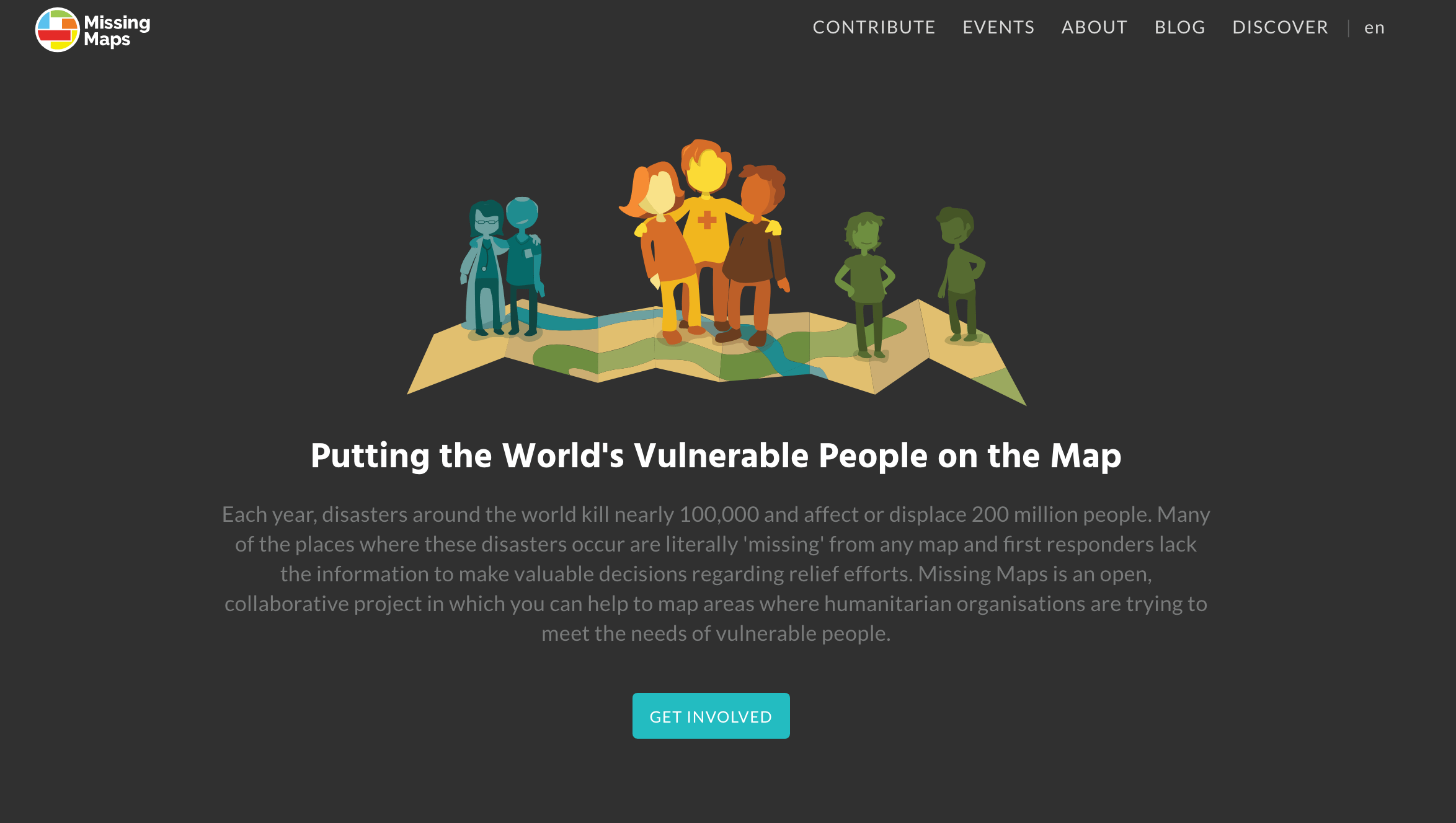Missing Maps

The Missing Maps is a collaborative project founded by HOT, Medecins Sans Frontieres, British Red Cross, and the American Red Cross.
The project aim is to provide base maps in the most vulnerable places in the developing world, so international and local NGOs and individuals can use the maps and data to better respond to crises affecting those areas, especially supporting ‘hidden emergencies’ - when huge humanitarian crises still don’t make the headlines. Since it’s inception in 2014, the project has expanded to over 15 new members. For more details, see the Missing Maps website.
The data we create is used by NGOs, health providers, and other agencies for a huge variety of projects. Common examples include disaster risk reduction and spatial epidemiology, improving response to outbreaks of diseases such as cholera, Ebola and measles.
Project ethics
- Using OpenStreetMap ensures that all data gathered under the project banner will be free, open, and available for use under OpenStreetMap’s open license.
- All ‘in country’ activities, i.e. local mapping and data collection are carried out in collaboration with local people.
- When working locally, people come before the data: if the goal is to map a city there needs to be a plan in place to ensure access to technology and training for those living in that community to continue using the maps after project completion.




